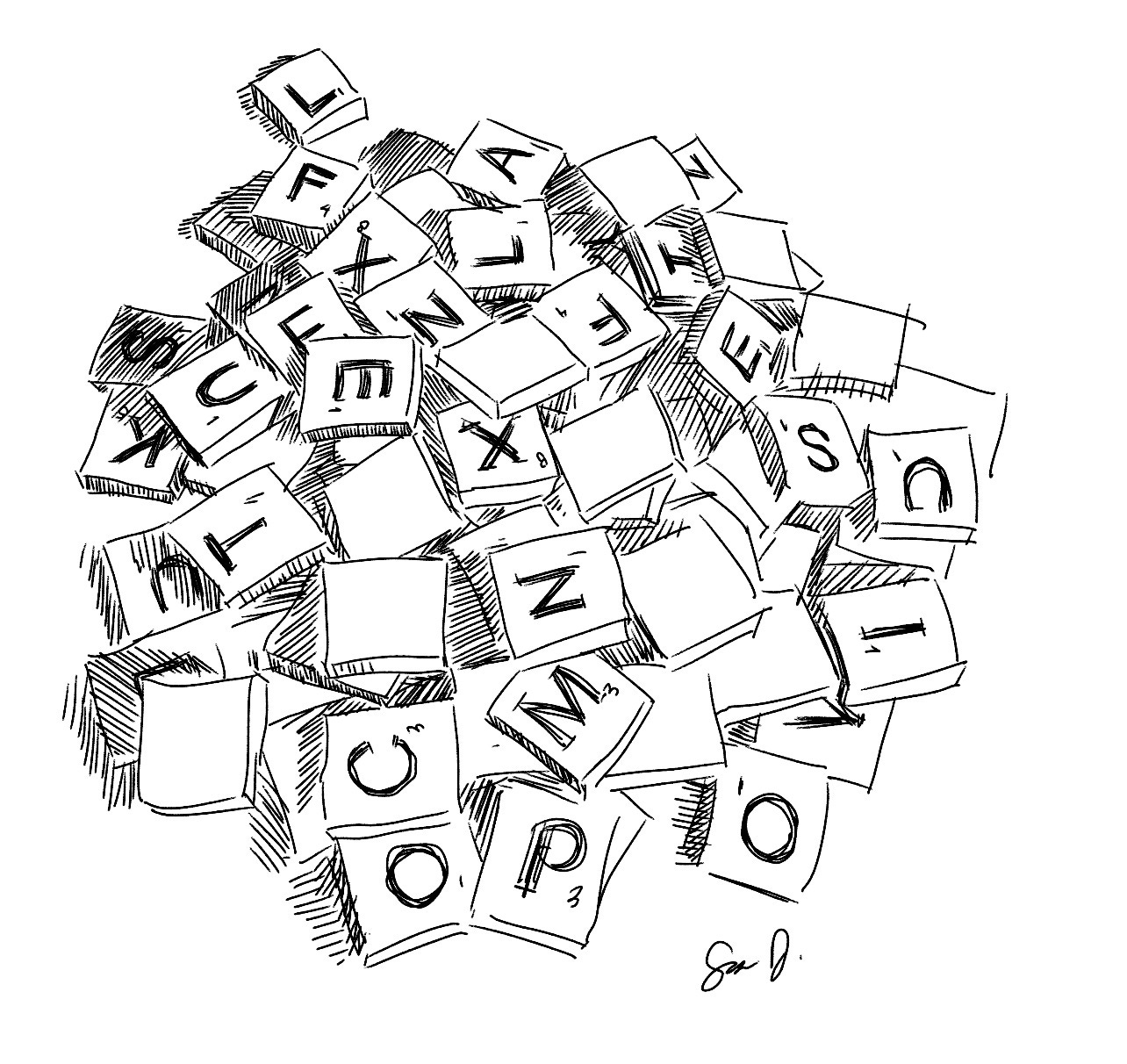About a year ago. I met her in a hospital room. I arrived early, with my Scrabble game in tow.
I’ve owned this particular game board since my youth. My mother owned it before me. Her mother before her. This game is older than Methusala’s fixed-arm mortgage. The date on the box is 1949. It’s one of my most prized possessions.
I come from word-people. My grandmother was a voracious reader. My mother read Michener novels the same way some people pop Tic Tacs.
Often, in my family, we played Scrabble for money. Meaning, if you were to play Scrabble against the women in my household, you would have quickly found yourself humiliated, in financial debt and—in many circumstances—naked.
I knocked on the hospital room door. The girl was lying in a bed. She was 16 and lovely. Her head was bald. Her body was weak and lean. I’ll call her Ariel.
She began suffering from headaches a few days after her 16th birthday. It was glioblastoma. The prognosis was bad.
“She’s good at Scrabble,” her mother told me in an email. “She read in one of your columns that you liked Scrabble, too. She would love to play a game with you.”
So I brought my game board.
But here’s the thing. In 20-odd years, I had never been beaten at Scrabble. Except once. And it was my wife who beat me.
Don’t mistake me. I’m not saying I’m “good,” per se. I’m only saying that, in many circles, I am a legend.
I set up the board. The girl opened with “cosmic.” A 24-pointer, and she used almost all her letters. Not a bad beginning.
“Your turn,” said Ariel.
Everyone thinks Scrabble is about large words and triple-word scores. Not true. The trick to the game lies in the two-letter words. Words like: “Aa,” “oe,” “id” “ka” and “xu.” You lay an “xu” down in just the right place, you’re looking at an instant win. I have all the two-letter words memorized.
My granny was the one who taught me this trick. My granny could beat anyone at this game.
But my little trick did no good. Soon, Ariel was ahead by 77 points. And I was sucking pond water.
Somewhere in the middle of our game, she looked at me and said, casually, “You think they have Scrabble in heaven?”
I didn’t know what to say. So I didn’t reply. I just examined my rack of letters and tried to figure out why I was losing.
“I hope they have Scrabble in heaven,” she went on, “because it’s my favorite game.”
Then she laid down a 3,247-pointer.
After which she said, “I’m not going to live.” She said this as easily as you’d talk about the weather.
“You don’t know that,” I said, trying to stay positive.
“No,” she said. “It’s okay. I know I’m dying, doctors have told me. It’s fine. I’m ready.”
“Ready?”
“Yes. I’m ready to die.”
I laid down a two-letter word. Eight points. “You might surprise the doctors,” I said. “In my life as a writer, I’ve written about lots of cancer patients. And I’ve seen miracles.”
“Miracles don’t all look the same,” she said.
“What do you mean?”
“I mean that my mom and dad were divorced before I got sick. My family was torn apart. My grandparents blamed my mom, my dad hated us, and everything was a mess.
“But since I got sick, our family came together. My mom and dad are together again, they’re talking about getting remarried. My grandparents come by every day. Cancer did that. It made us a family again.”
I choked back tears. Not because of what she was saying, but because she laid down the word “axe” on a triple-word square.
“God knows what he’s doing,” she added. “That’s the thing. Everyone thinks this world is all chance. But nothing is chance.”
Ariel beat me. 2,394,876,002 to 121.
We stayed in touch. We played Scrabble online several times. She always won, of course. She just had that kind of brain. The same brain that was eventually so battered with cancer that she had to quit playing her favorite game. But not forever.
Because as of this morning, the young and brilliant Ariel is playing Scrabble with my grandmother.






Sean that is a phenomenal and beautiful piece of writing. You are a master wordsmith and a powerful storyteller. My heart was in my mouth the entire time and the ending broke my heart. Simply beautiful.
It sounds so casual; “I met her in her hospital room with my Scrabble board in tow.” Her mother wrote to you and told you that her 16-year-old child was dying and that she wanted to play Scrabble with you, and you went. That, my sweet man, is Jesus in the skin. You change lives with these “little” acts of kindness that are so huge. You affirm them, you see them, and you let them know they matter.
I run a women's ministry in Uganda. It's very small, but it's very mighty. I'm going back over for the 13th time on the 2nd. We do what we do out of pure love, just like you. When someone tells me that they now know that “God sees them,” because we went, priceless, just like you.